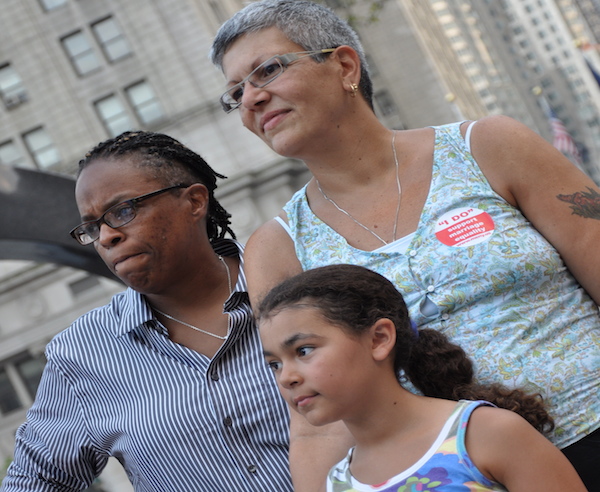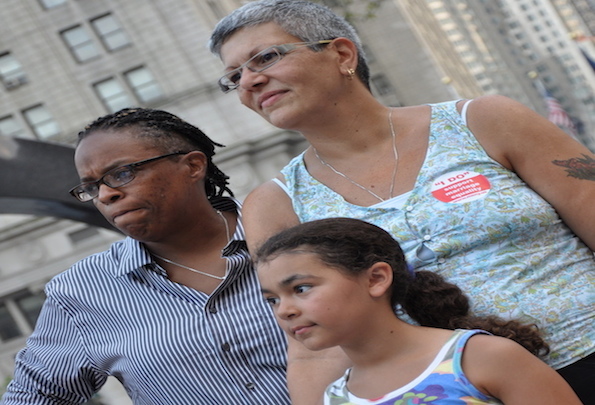Study is the first to examine whether lesbian mothers’ satisfaction with sperm donor selection is associated with psychological health problems in their adolescent offspring

Eighteen years after conceiving their sons or daughters through donor insemination, 77.5 percent of lesbian mothers were satisfied with their choice of a known, open-identity, or unknown sperm donor, according to a new study released today by the Williams Institute.
“Although heterosexual couples utilizing donor insemination services generally choose unknown donors, prospective lesbian mothers consider donors of all three types, depending on their preferences and circumstances,” said Principal Investigator Nanette Gartrell, MD, a psychiatrist and Williams Institute Visiting Distinguished Scholar. “It’s often a complicated decision that involves a consideration of the child’s need to know her or his genetic origins, balanced with prospective mothers’ desire to raise children within a planned lesbian family and without custody disputes.”
The study includes interviews with 129 lesbian birth and co-mothers about their satisfaction with the type of sperm donor they had chosen. Additionally, their 77 adolescent offspring completed a standardized test to assess psychological health problems. There were no differences between birth mothers and co-mothers on satisfaction with donor type. The mothers’ satisfaction with donor type was unrelated to the presence or absence of psychological health problems in their 17-year-old adolescents.
“Donor access and custody concerns were the primary themes associated with the mothers’ satisfaction,” said co-investigator Henny Bos, PhD., a former visiting international scholar at the Williams Institute, UCLA School of Law, and associate professor at the University of Amsterdam. “When they were inseminating, prospective mothers chose known, open-identity, or unknown donors based on their feelings about donor involvement in the child’s life. Those who wanted to preserve the integrity of their lesbian family without a donor/parent or custody disputes were more likely to have chosen open-identity or unknown donors.”
Among those indicating that they would make the same choice if they had it to do over again, 37% had used known donors, 31% open-identity (i.e., those who agree to be contacted by offspring of a certain age, typically 18 years old), and 32% unknown donors to conceive their 17-year-old offspring who have been followed since birth in the U.S. National Longitudinal Lesbian Family Study (NLLFS).
The NLLFS is the longest-running and largest prospective investigation of lesbian mothers and their children in the United States. Initiated by Dr. Gartrell in 1986, the NLLFS examines the social, psychological, and emotional development of the children as well as the dynamics of planned lesbian families.
For more information, visit: https://www.nllfs.org/publications/ and to download the study, please click here.


